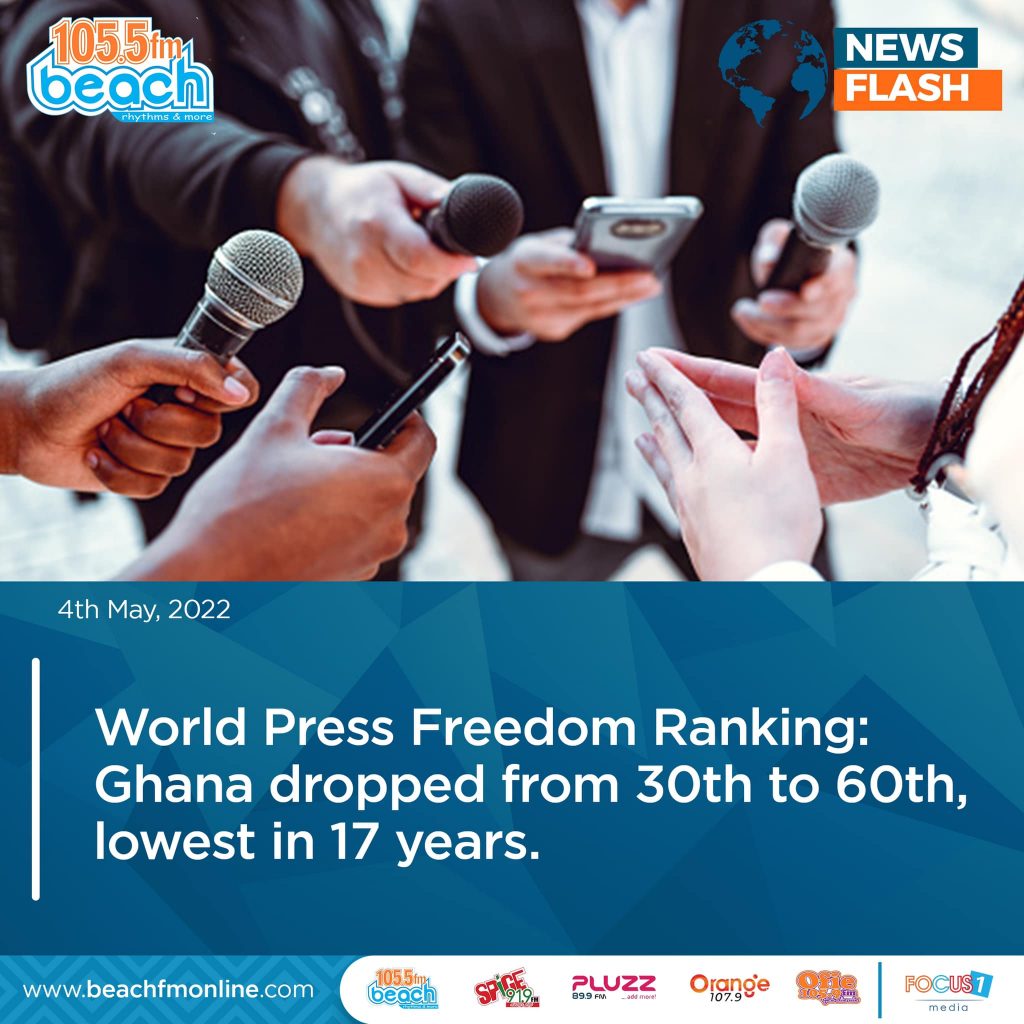Ghana’s Position on Press Freedom Index Report not surprising – Media Response

A representative of Media Response, Kwaku Oteng, says Ghana’s low position in the 2022 World Press Freedom Index is not surprising.
“This report comes with no surprise to journalists, considering the harassment, mishandling and death of pressmen in the country. It is also distressing. Media freedom has declined in some years past,” he said.
His comment comes on the back of the latest rankings by Reporters Without borders where Ghana dived 30 places to 60th globally, and 10th in Africa.
He attributed the fall of Ghana’s rankings to the death of Ahmed Suale, an investigative journalist with Tiger Eye Pi, and the arrest of Bobbie Ansah and Captain Smart while performing their duty.
According to Kweku Oteng, the Ghana’s constitution affirms the media as the fourth estate of government which should be independent from the Executive, Legislature and Judiciary.
He observed that most media houses belong to the political elite which sometimes compromises with the duties of journalists.
“In Ghana, media houses are owned by politicians’ who control what content are carried out by journalists and as such journalists are at the whims and caprices of their owners,” he stated.
He further commented about the poor working conditions of service given to journalists which goes a long way to influence them to fall victims to political offers that affect the objectivity in the practice of journalism.
Oteng further appealed with Civil Society Organizations to as a matter of urgency speak against the ills meted out to pressmen who get harassed and mishandled whilst performing their roles.
In his advice to the press, he said, ” Let us know that our duty is to the country’s development and to ourselves. Our profession should be accorded with the needed respect.”
He also called on the government especially President Akuffo Addo to his credentials as a Human Right Activist to help curb the abuse on pressmen in the country.
World Freedom Index was compiled using a new methodology to take better account of new challenges, including those linked to media digitalisation.
Another change in the data gathering this year was that although the survey stopped at the end of January 2022, updates for January to March 2022 were carried out for countries where the situation had changed dramatically, such as Russia, Ukraine and Mali.
The survey assesses on the basis of a quantitative survey of press freedom violations and abuses against journalists and media, and a qualitative study based on the responses of hundreds of press freedom experts selected by RWB – which includes journalists, academics and human rights defenders.
A country fact file published by RSF said “Although the country is considered a regional leader in democratic stability, journalists have experienced growing pressures in recent years”.
“To protect their jobs and their security, they increasingly resort to self-censorship, as the government shows itself intolerant of criticism. In addition, one-third of media outlets are owned by politicians or by people tied to the top political parties. The content they produce is largely partisan,” the fact file reads.




